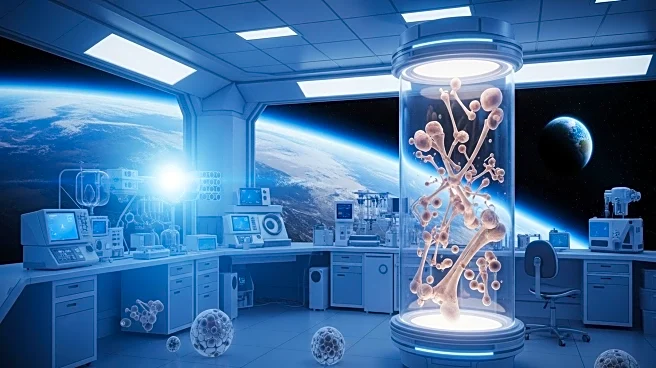What's Happening?
NASA astronaut Zena Cardman is conducting experiments aboard the International Space Station to study the effects of microgravity on bone-forming and bone-degrading cells. This research, taking place in the Kibo laboratory module's Life Science Glovebox, aims to understand how microgravity impacts bone health. The findings could lead to strategies to prevent bone loss in astronauts during long-duration space missions to the Moon and Mars. Additionally, the research holds potential benefits for millions of people on Earth suffering from osteoporosis, a condition characterized by weakened bones.
Why It's Important?
The study is significant as it addresses the challenge of bone density loss in astronauts, a critical issue for future space exploration missions. Understanding and mitigating bone loss is essential for the health and safety of astronauts on extended missions, such as those planned for Mars. On Earth, the research could lead to advancements in osteoporosis treatment, improving the quality of life for individuals affected by this condition. The dual benefits of this research highlight the interconnectedness of space exploration and terrestrial health advancements.











